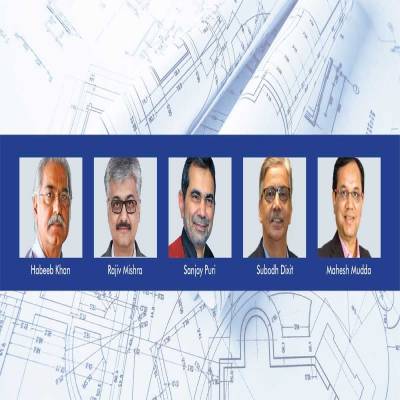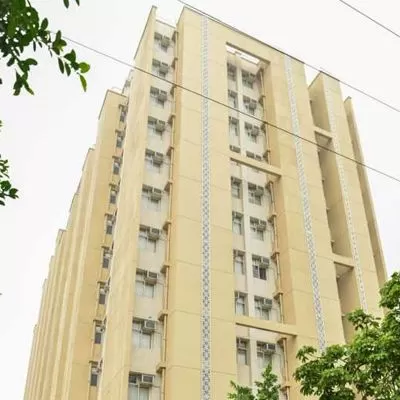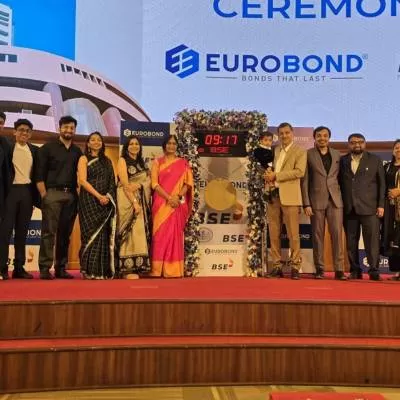The Architect Challenge
 Should only qualified architects be allowed to practice architecture?
Should only qualified architects be allowed to practice architecture?
CW?s webinar discusses the Supreme Court judgment and the way forward.
On March 17, the Supreme Court held that the Architects Act 1972 does not prohibit individuals not registered under the Act to undertake the practice of architecture and other cognate activities. The Court has now held that while Section 37 does not bar a person not registered under the Act from carrying out activities related to the profession, it prohibits an unregistered person from using the title of architect. In other words, a person carrying out architectural activities need not be registered with the Council of Architecture (CoA), which is the regulatory body for architects in India.
?If the legislature were to impose an absolute prohibition against unregistered individuals from practising architecture, there would be considerable confusion as to what activities formed the practice of architecture and what did not,? the Court said. ?It may have resulted in a host of other legitimate professionals being barred from engaging in the design, supervision and construction of buildings merely because they were not registered under the Architects Act.?
Given this new directive, will educational institutions and current students be discouraged and, more important, become obsolete?
CW conducted yet another successful webinar on
The Architect Challenge, which witnessed great success with over 1,000 attendees tuning in to hear what our esteemed panellists
had to say on India?s way forward in architecture.
The webinar began with presenter Pratap Padode, Editor-in-Chief, CONSTRUCTION WORLD and President, FIRST Construction Council, welcoming the guest panellists to the session. The panellists included industry stalwarts Subodh Dixit, Executive Director-Engineering and Construction, Shapoorji Pallonji and Company; Rajiv Mishra, Principal, Sir JJ College of Architecture; Sanjay Puri, Principal Architect, Sanjay Puri Architects; Mahesh Mudda, Managing Director & CEO, NCCCL; and Habeeb Khan, President, Council of Architecture.
Padode began by citing some definitions of architecture. ?Architecture is the process of both planning and designing a project,? he said. ?Another definition says that architecture is the art and science of designing buildings and structures.? Coming to the Supreme Court ruling, Padode went on to question:
?Will the Supreme Court ruling make qualified architects irrelevant? Is there a cause of worry for students?
To this,
Habeeb Khan, President, Council of Architecture (CoA), replied, ?I don?t think any difference has happened. What the
Supreme Court mentions is something already present in the Architects Act since 1972.
The Supreme Court has only said what is written in the Act. I don?t think it will make any difference.? He went on to add that in 1972, when the Act was created, India
had few architects and institutions.
?We now have over 1 lakh architects. The Supreme Court has only interpreted what is in the Act.?
The objective is to prevent untrained people practising in the field, Khan went on to add. Having said that, ?Section 37 actually defeats the purpose of the Act itself. So, it has created a little controversy, and it needs to be looked at objectively. When the Act was enacted in 1972, there was no complexity. Complexities have evolved over a long period of time. We need to relook at what architect services include and relook at the Act accordingly.? He added that
the CoA is working on appealing to the Supreme Court on certain clauses that were overlooked by the bench. ?We will file for an appeal once the lockdown is over.?
Architectural education and practice is art and technology, which is subjective and objective. ?Anybody not trained can work on the objective part, but the subjective part ? which is the art or creativity ? needs to be inbound and
earned over a period of time,?
highlighted Khan. ?The only part to worry about is what the quality of work will be if untrained architects are working on it.?
In view of the Supreme Court ruling, Rajiv Mishra, Principal,
Sir JJ College of Architecture, said, ?The only thing is that people can practice like an architect but cannot call themselves an architect. The CoA is working towards reforming its Act and trying to amend it. The Supreme Court has actually written what is in the Act; it only reads the interpretation of the legislation.
So, the interpretation needs to be reviewed. The schools need not worry about it. In all architectural institutes, comprehensive services are learned. A student actually goes through the whole phase of a project ? from designing a project, preparing a tender and inviting it, and everything else.?
In agreement, Mahesh Mudda, Managing Director & CEO, NCCCL, said, ?The Supreme Court judgement is not saying anything new, and is not going to discourage anybody. Any good architect will survive. Students don?t have to worry about their future because there is no dearth of work. There is no ambiguity for those who have been in the field for a long time, are not qualified, but have been practising or adding value for a long time now. If someone is adding value, there is no need to worry ? unless there is a major change in the Act. With respect to the judgement, there is no need to worry whether architects are qualified or non-qualified. A degree is one thing, but inbound talent is also another thing; if people are adding value, nobody is going to take away anything substandard. If somebody is complementing, we must respect the value they are bringing in.?
Subodh Dixit, Executive Director-Engineering and Construction, Shapoorji Pallonji and Company, also agreed.
?The Supreme Court judgement is only the interpretation of the Act. Students should not worry because there is plenty of work. There are many well-known architects who have created wonderful designs,
but are not actually qualified architects; however they are still given high regards.? He draws a parallel to structural works, citing the example of civil engineers who are not qualified but do a diploma in the field.
Sanjay Puri, Principal Architect, Sanjay Puri Architects, however, is of a different opinion, hailing from the field of architecture itself. ?Just like a doctor cannot practise without qualification, so too an architect cannot practise without the required qualification. The Supreme Court ruling is that a person cannot call himself an architect if not qualified. The CoA needs to amend the Act. There are people who are not qualified and submitting plans; they work for architects for several years and then go ahead and submit plans for projects. It cannot be that anyone creates a plan. It should be mandatory that we cannot have a non-qualified architect submit a plan. The CoA can define what comes under the Act to redefine the process.?
While the Architects Act 1972 definitely needs amendment,
it appears as if those practising architecture can breathe a sigh of relief now, with much clarity on the Supreme Court judgement coming through our webinar from
industry stalwarts.
Scan the QR code to watch the webinar video.
To share your views, write in at feedback@ConstructionWorld.in

 Should only qualified architects be allowed to practice architecture?
Should only qualified architects be allowed to practice architecture? 










